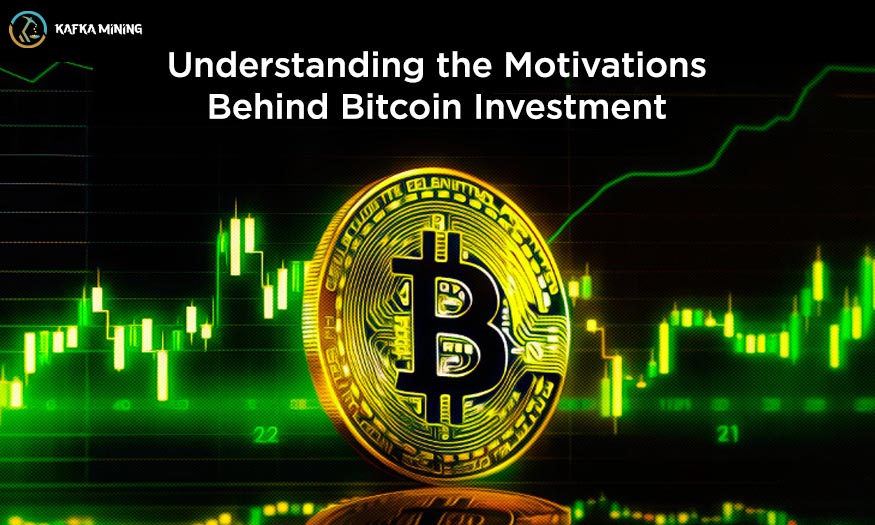
Since Satoshi Nakamoto introduced the Bitcoin network in 2008, the demographic of investors in the Bitcoin market has undergone significant shifts. As the market has matured, various entities, including individual investors, family offices, and institutional investors, have shown growing interest in Bitcoin as an investment avenue.
The evolving price dynamics of the market have heightened demand for Bitcoin among investors. Moreover, factors such as the desire for portfolio diversification, anticipation of future utility, response to global macroeconomic events, and regulatory developments have further bolstered investors' conviction in the enduring value proposition of Bitcoin.
As the Bitcoin market evolved from its nascent stages, investors faced a scarcity of data to gauge its performance within portfolios. However, with maturity, Bitcoin demonstrated a low correlation with traditional assets. Consequently, a growing cohort of individual and institutional investors incorporates Bitcoin to bolster portfolio diversification. This strategic move aims to optimize portfolio returns while mitigating risks, aligning with the principles of portfolio theory.
Investors are increasingly drawn to Bitcoin for its potential to preserve value over the long term. As the cryptocurrency has demonstrated consistent price growth, surpassing other assets, it instills confidence in investors regarding its enduring value. This perception has prompted many individuals to view Bitcoin as a strategic component of their retirement portfolios and intergenerational wealth planning. Notably, major financial institutions are facilitating Bitcoin exposure within IRAs. Moreover, Bitcoin's self-custody feature streamlines wealth transfer across generations, offering a more efficient alternative to traditional banking channels and reinforcing its appeal as a store of value compared to fiat currency.
Investors perceive Bitcoin as a viable long-term store of value, primarily due to its potential as a hedge against inflation. Unlike fiat currencies susceptible to inflationary pressures resulting from unlimited money supply, Bitcoin's capped supply of 21 million tokens safeguards it against such risks. Amidst expanding money supplies and declining real yields, Bitcoin emerges as an appealing option for both individual and institutional investors seeking to safeguard the enduring value of their investments over time. This quality has contributed significantly to Bitcoin's attractiveness in the investment landscape.
Investors are increasingly recognizing Bitcoin's potential for use beyond investment, seeing it as a versatile asset offering practical utility. As Bitcoin's market matures and institutional adoption expands, its potential for facilitating transactions, serving as a method of payment, and even acting as collateral for debts becomes more apparent. This broader utility adds another layer of value for investors seeking to capitalize on Bitcoin's future potential.
With an increasing number of merchants accepting Bitcoin as a payment method, its utility as a medium of exchange continues to expand. As the value of the dollar declines relative to Bitcoin, its divisibility and enduring value make it an appealing choice for both buyers and sellers. Bitcoin's inherent divisibility ensures it can accommodate transactions of any size, while its decentralized nature enables near-instantaneous and secure transactions between parties. Unlike traditional payment systems reliant on trusted third parties, Bitcoin transactions occur swiftly and efficiently, without the risk of double-spending, enhancing its appeal for everyday commerce.
In the evolving landscape of financial services, various lending institutions now provide clients with the option to leverage Bitcoin as collateral for loans. Unlike traditional collateral assets such as real estate or vehicles, which are subject to depreciation, Bitcoin's capacity to preserve its value over time holds significant appeal for consumers. Utilizing Bitcoin as collateral can expedite the loan approval process as the ownership of Bitcoin is easily verifiable. This approach offers investors the flexibility to access the value of their Bitcoin holdings without the need to liquidate them, particularly beneficial for those committed to holding Bitcoin as a long-term investment.
Investors' decision to engage with Bitcoin stems from their concerns regarding traditional centralized financial systems. Bitcoin and its blockchain technology have disrupted these systems, prompting investors to seek alternatives. At the macroeconomic level, worries persist about the potentially unlimited money supply of fiat currencies, raising concerns about inflation and currency devaluation due to incessant money printing. Bitcoin's fixed supply of 21 million units appeals to investors seeking long-term asset preservation. Moreover, investors value the autonomy offered by Bitcoin's self-custody feature, allowing them to control their funds directly, set transaction fees, and make prompt decisions without relying on intermediaries, unlike traditional financial institutions.
Investors are drawn to Bitcoin due to its robust security protocols, which contrast with the vulnerabilities of centralized financial institutions. Unlike traditional banks, which face increasing risks of hacking, Bitcoin's decentralized network poses formidable challenges to attackers. Hacking the Bitcoin network demands control of over 51% of its total computing power, making it exceptionally difficult. Furthermore, Bitcoin hardware wallets, especially cold wallets, provide additional security by allowing users to store their assets offline, shielding them from digital threats. This enhanced security offers investors peace of mind and reinforces Bitcoin's appeal as a secure investment option.
In conclusion, investors are increasingly turning to Bitcoin as a key component of their investment portfolios for various reasons. Bitcoin offers diversification benefits, serves as a long-term store of value, presents opportunities for future use-value, and provides security features that are lacking in traditional financial systems. Additionally, skepticism towards centralized financial institutions and concerns about inflation drive investors to seek alternatives like Bitcoin. As the cryptocurrency market continues to evolve and mature, Bitcoin is poised to remain a prominent asset class, attracting both individual and institutional investors seeking to capitalize on its unique attributes and potential for long-term growth.
Leave a Comment